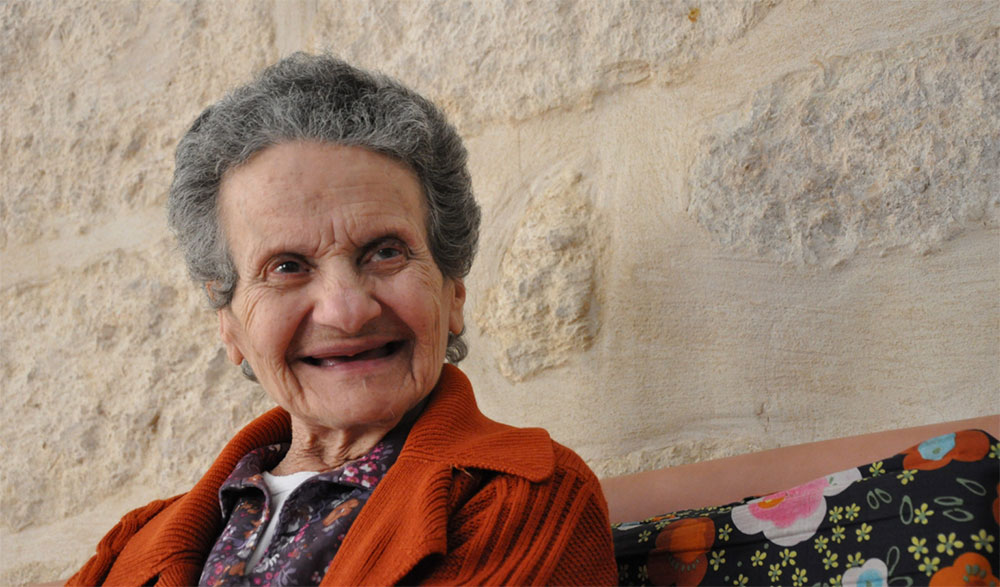“And tell me Jameela, how do you sustain your wretched existence?”
“With sushi and mosaics!”
In the third video of the TAMAM column shot in Jericho with Giovanni Scifoni you met Jameela, the nice lady who, despite her age, has an agenda full of activities that she carries out with her friends.
But in a land as holy as it is complicated and full of contradictions, everyday life for elderly Palestinians is not at all easy.
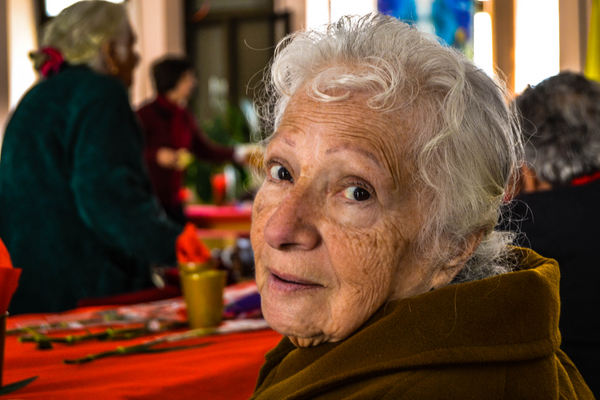
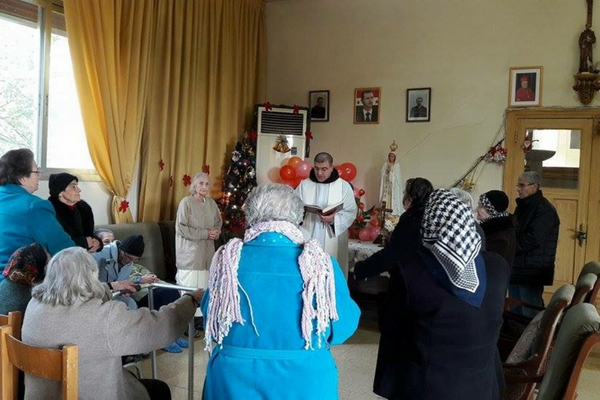
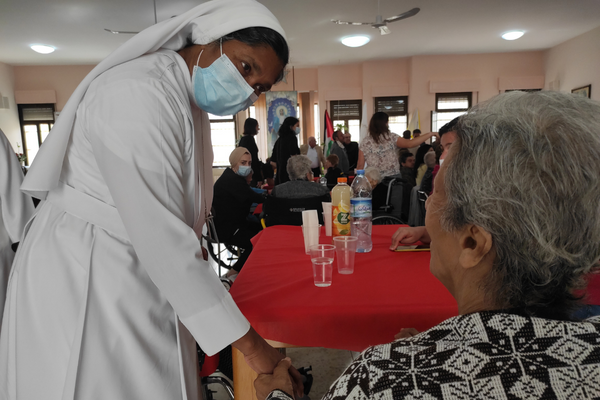
The situation
Jericho is a city in the West Bank, remembered in the Gospel for being the place where Jesus restored sight to the man born blind. Life in the occupied Palestinian territory is an ongoing challenge. The difficult political, economic and social situation strongly affects the weakest, especially children and the elderly. Among the latter, there are more and more cases of abandonment and loneliness, because many families do not have the economic means to take care of them.
There is no public health care in the Palestinian territories. There is a total lack of an adequate state program: there are no health insurances, unemployment benefits, pension funds, or even family allowances or maternity benefits. There is a lack of an aid and service plan for the most disadvantaged people and for those who are not self-sufficient.
The Palestinian Authority is unable to protect older people who cannot access social welfare programs, simply because they do not exist. As a result, the many elderly people, like Jameela, often live abandoned and without being able to benefit from medical and psychological care and attention.
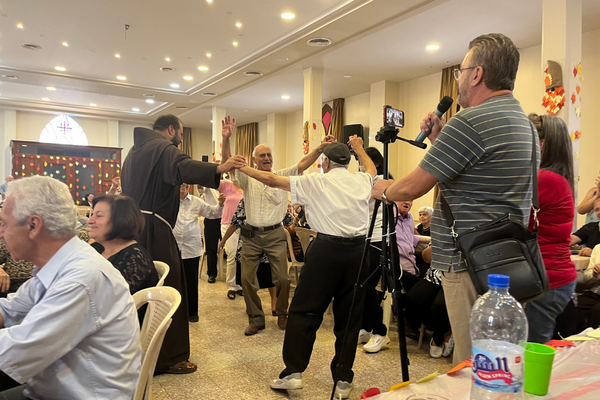
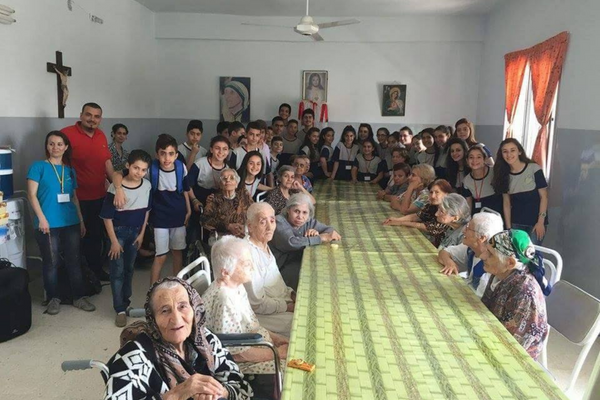
In Palestine the social situation is in constant emergency.
Medical care for the elderly is one of the most urgent needs in Palestine, but it is also one of the most difficult to respond to due to the particularity of the social context. About five million Palestinians live on their land, while twelve and a half million reside abroad.
Massive emigration to foreign countries has caused a sharp increase in the number of people over 65 who find themselves alone. Some of them cannot afford the costs and do not have the physical and psychological strength to emigrate. Others, on the other hand, do not want to leave their home where they have lived all their lives.
Living a peaceful old age is a dream for many Palestinians, often forced to work to the end of their strength in order to survive. And those who cannot work because of chronic diseases, disabilities and physical problems cannot count on the help of the government or family. It is a form of social violence that is addressed by charities, private organizations and NGOs such as Pro Terra Sancta.
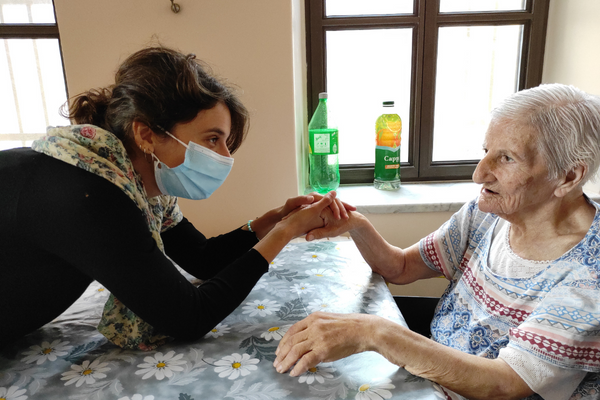
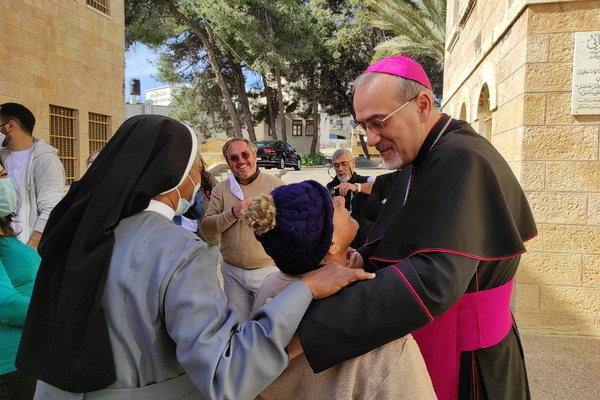
The help of Pro Terra Sancta
Since its establishment in May 2002, Associazione pro Terra Sancta has been the lay arm of the Custody of the Holy Land and intervenes in support of educational and social works and cultural and archaeological activities.
Over the years Pro Terra Sancta has provided and continues to provide social, medical and financial assistance to thousands of people, developing a strong personal relationship with beneficiaries, families and institutions.
The Association always focuses on the dignity of the person, from childhood to old age.
As for the elderly who alone cannot cope with the emergency, the main objective is to provide them with regular treatment, medicines, care, emergency hospital admissions, food subsidies and an adequate plan for rehabilitation, prevention, information and inclusion in society.
Many elderly people in Palestine spend most of their time at home alone, usually in run-down buildings. They often suffer from chronic or other diseases without being able to afford treatment and medicines. The charitable realities supported by Pro Terra Sancta in the care of the elderly They are managed by congregations of nuns and religious supported by qualified social workers, local or foreign volunteers who with patience, dedication and many difficulties, dedicate all their energies to welcoming the elderly too often forgotten..
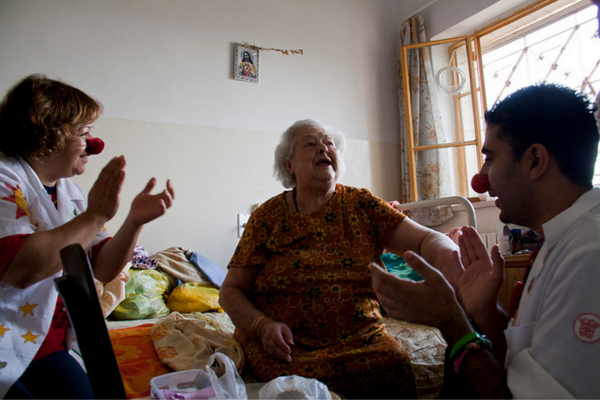
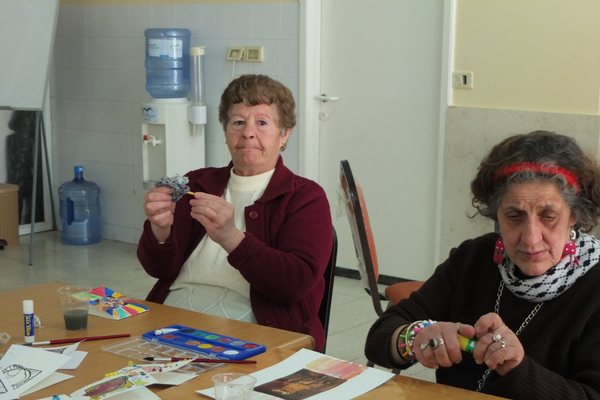
The sisters and medical staff treat, wash, feed, administer medicines and keep company, every day and every night, to hundreds of “grandparents”. But food, medicine, water, electricity, everything has a cost here too. The care related to any type of disease is borne by families who receive no other help than from the parish. The elderly we welcome in our facilities do not have to pay anything – everything is supported by precious donations.
“Seniority also contains a grace and a mission, a true vocation of the Lord. Seniority is a vocation. It is not yet time to “pull the oars in the boat”.
Veronica Brocca | proterrasancta.org

